South Africa head coach Rassie Erasmus expressed hope that his team's victory in the Rugby World Cup final against England on Saturday can inspire his nation, but dismissed the notion that the Springboks were under pressure at the tournament.
"In South Africa, pressure is not having a job," Erasmus said after the Springboks had beaten England 32-12 at International Stadium Yokohama to claim the Webb Ellis Cup for the third time, following victories in 1995 and 2007. "Pressure is one of your close relatives being murdered. In South Africa, there are a lot of problems, and we started talking about that.
"Rugby shouldn't be something that creates pressure on you. Rugby should be something that creates hope. So we started talking about how we've got a privilege of giving people hope, not a burden of giving people hope."
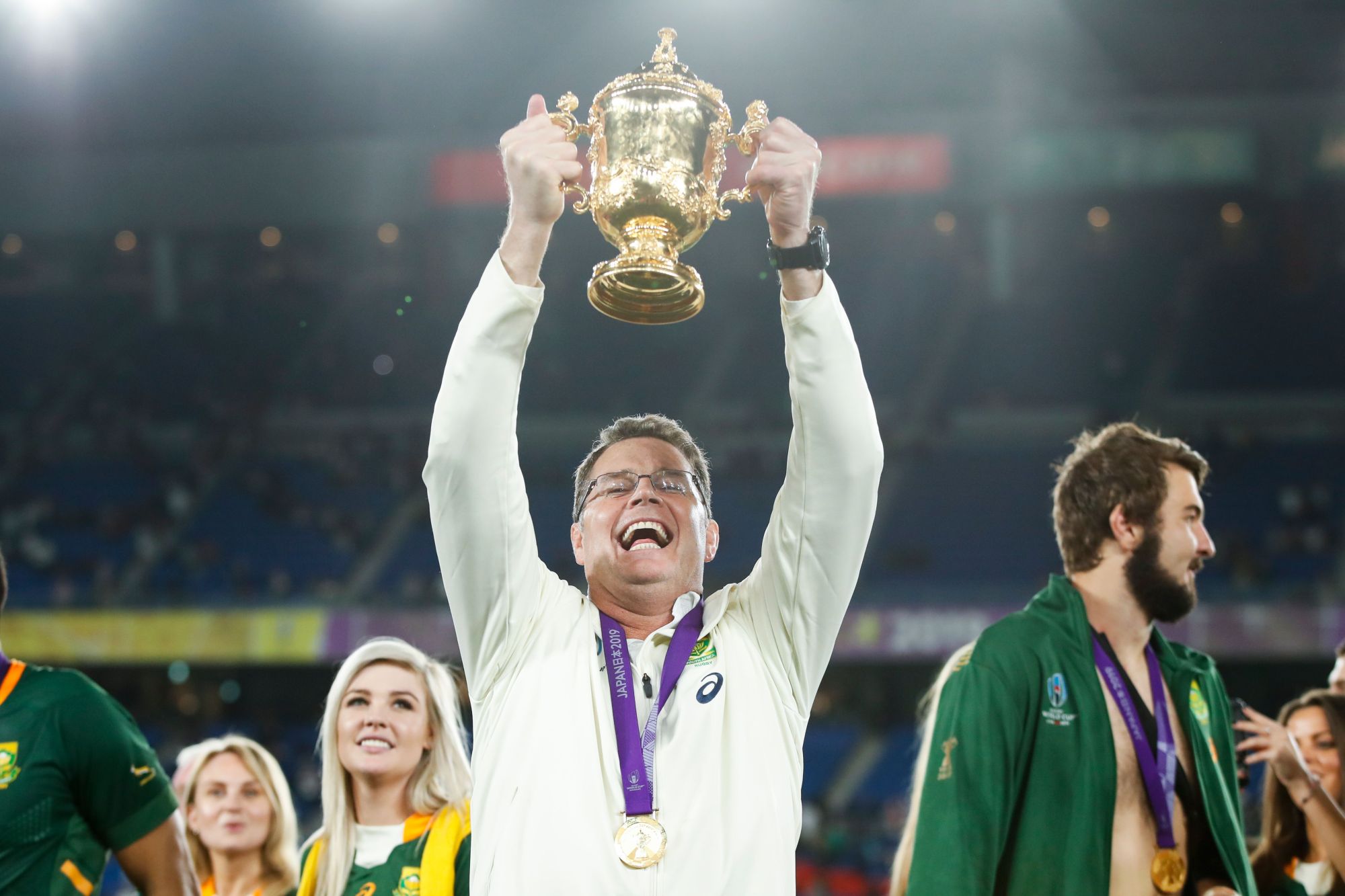
South Africa captain Siya Kolisi lifted the trophy after 22 points from the boot of standoff Handre Pollard and late tries from wingers Makazole Mapimpi and Cheslin Kolbe took the Springboks past England, creating an instantly iconic image to sit alongside Nelson Mandela's handing of the cup to then-skipper Francois Pienaar in 1995.
Kolisi became the Springboks' first-ever black captain when Erasmus appointed him in May last year, but the 28-year-old was quick to praise the contribution of his teammates, coach and supporters after creating a new piece of history on Saturday.
"I can't explain what I was feeling, but to see the joy in my teammates' faces was the best thing for me," said Kolisi. "I know how hard we've worked and how hard the coaches have worked. We're really just grateful. The way we played, we wanted to say thank you to our coach, who has come in and changed a lot.
"We know how many people didn't give us a chance, but we had to believe in each other as a team and the people around us. He kept on telling us how good we are and he drove us to work hard. He drove us to places we hadn't been before. It was special for all of us. I've never seen such support from our people back home. I honestly don't think we could have done it without them."
South Africa's success at Asia's first-ever Rugby World Cup was built on the strength of its pack, and the Springbok forwards took their game to a new level against England in the final.
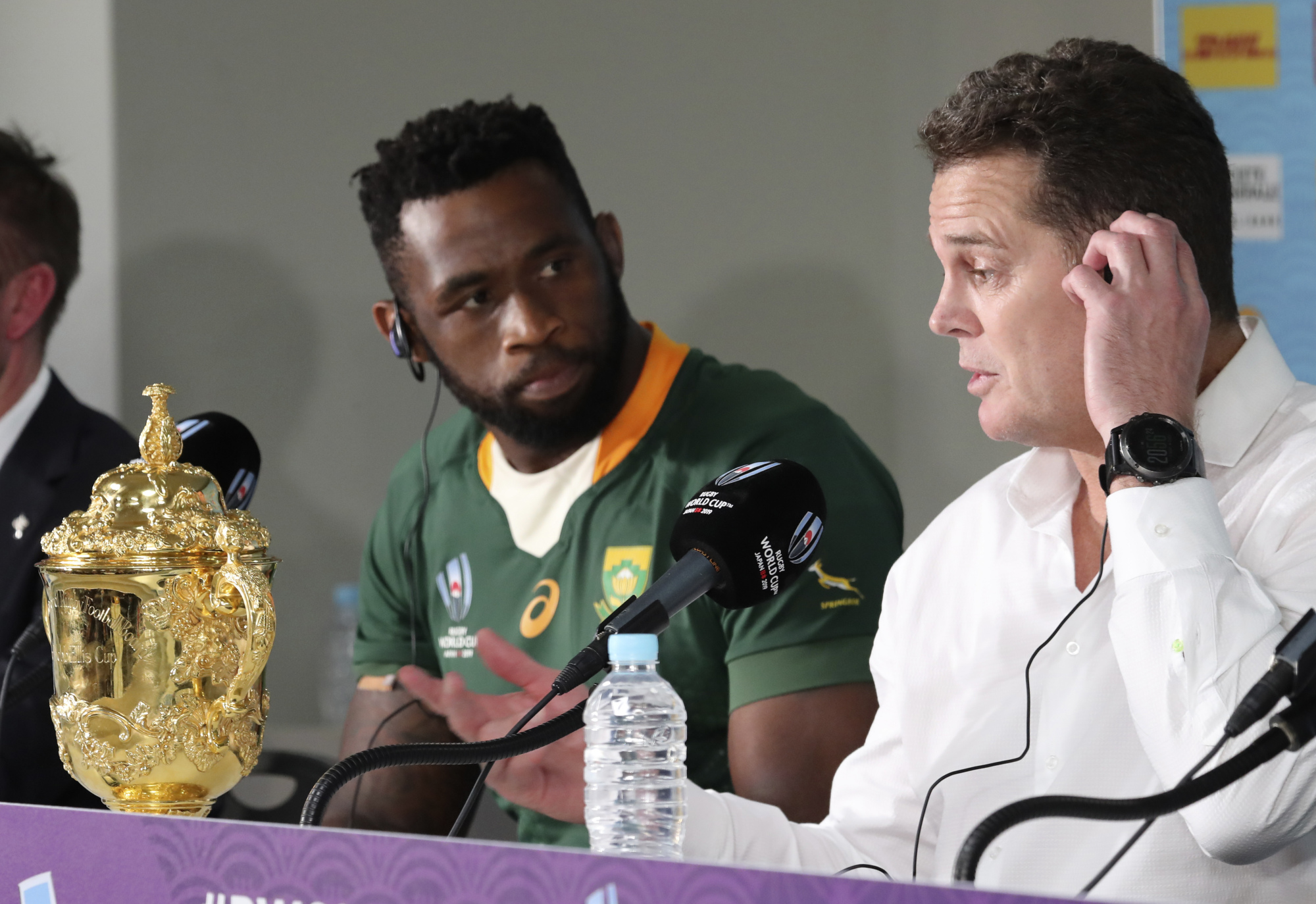
Erasmus has consistently named six forwards on his bench so that he can bring on fresh legs midway through the game and not disrupt the pack's dominance, and starting prop Tendai Mtawarira was not surprised by how effectively it worked against England.
"We work very hard at our scrums," said Mtawarira. "We train super hard every week. Every week we have scrums in training that are probably at the same intensity as a test match. It's something that we pride ourselves on with our standards, and I think we've kept to our standards.
"I think it's something that has worked really well for us, having those guys bringing on the energy in the second half. It's a quality bench that can also start, so we've really done our roles. The guys who have started have laid the platform for the guys coming on. It's been a great combined performance."
The Springboks started their campaign with a 23-13 defeat to New Zealand, putting them at odds with a piece of World Cup trivia that said no team that had ever had lost a match had gone on to win the trophy.
South Africa recovered to beat Namibia, Italy and Canada in the pool stage before ending host nation Japan's dream run in the quarterfinals, then a tense semifinal win over Wales gave the team its chance to beat England in the final.
"There is always pressure on us, but we've got such a balanced group and players with cool heads," said scrumhalf Faf de Klerk. "I think it showed tonight. We believed in our plan and what we could achieve. To get a win like that in a final is amazing. Unexpected, but I always knew we could do it. Credit to the boys for working hard, especially after that first loss. The boys just grew and grew every week. I think it finally showed at the end."

Erasmus will now step down as head coach and return full-time to his position as the nation's director of rugby, having only taken the coaching role because the team was in crisis early in 2018.
Erasmus revealed that he would have quit as coach if the Springboks had lost to New Zealand in September last year following defeats to Argentina and Australia, but Kolisi was glad he stayed to see through the revolution he had started when he took over earlier that year.
"From the first meeting we had, he was just straightforward," Kolisi said of Erasmus. "He told us exactly what we were doing as players. A lot of us were getting quite a lot of money and we were just doing things off the field, trying to inspire people by not playing rugby. We didn't make rugby the main thing. He told us straight, 'it has to change. Rugby is more important. The Springboks are more important than our personal goals.' That was the change of our mind set."



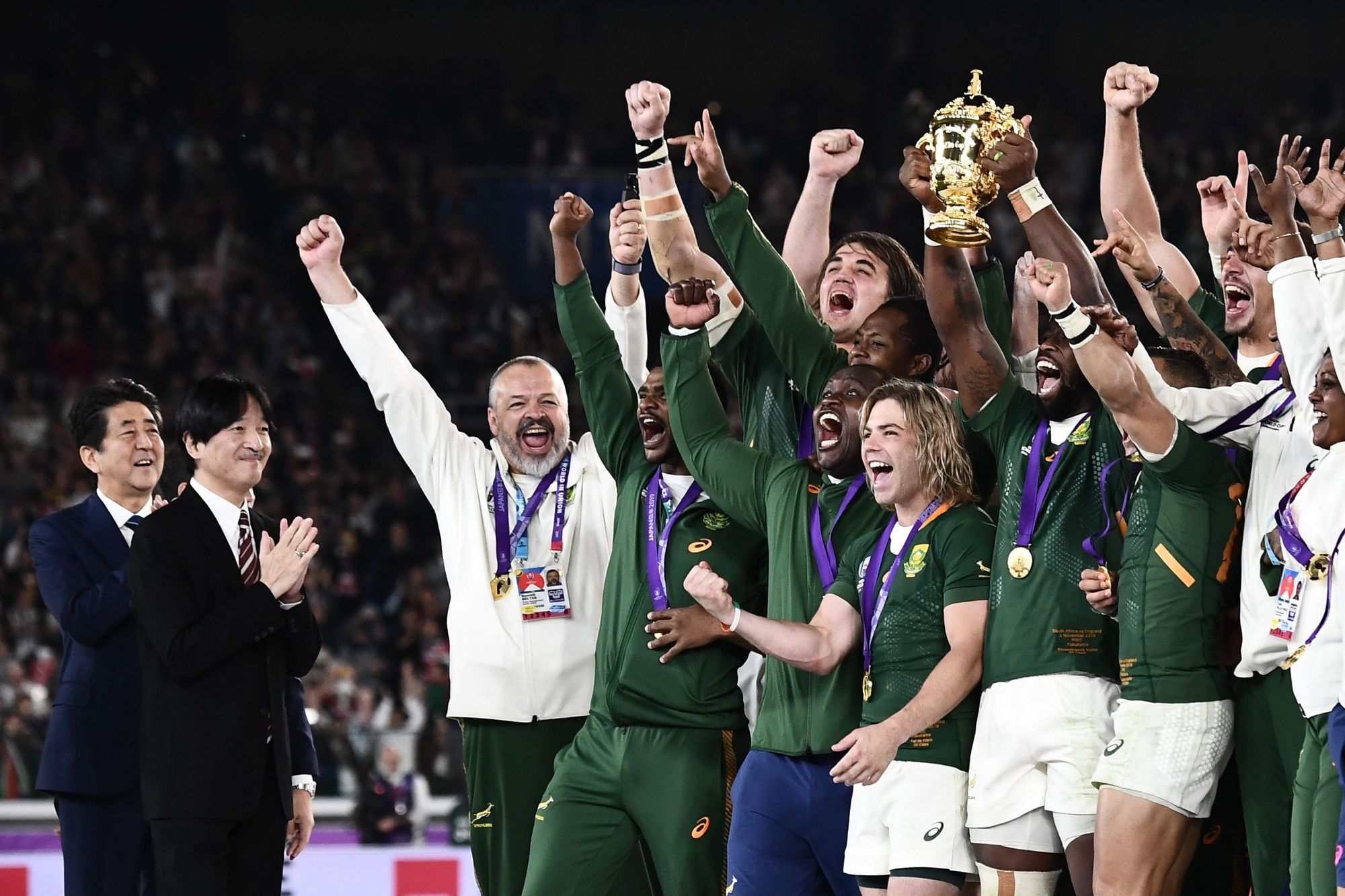

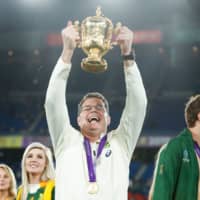
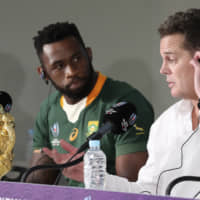
















With your current subscription plan you can comment on stories. However, before writing your first comment, please create a display name in the Profile section of your subscriber account page.